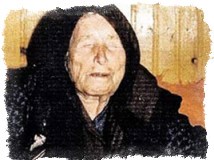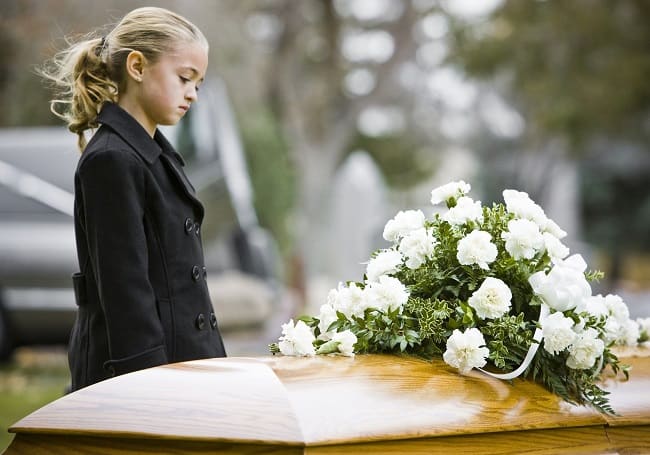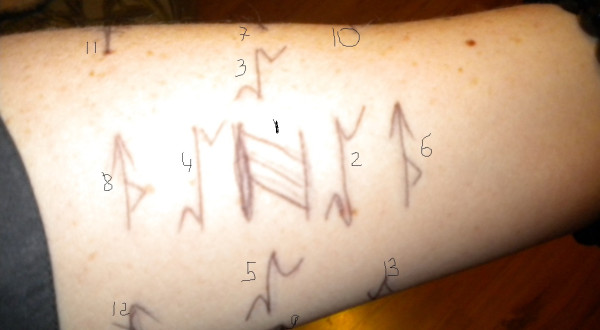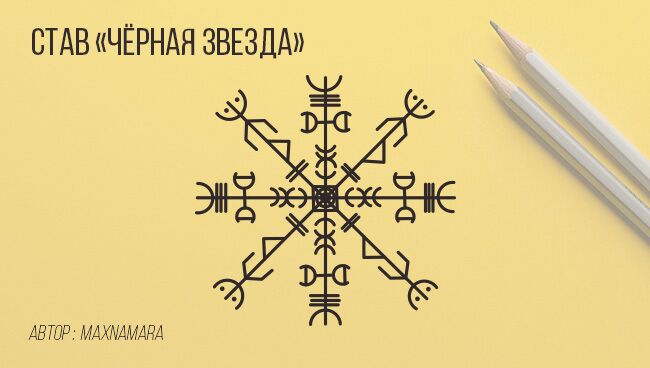The first days of the Soul after death. During the first two to three days after leaving the body, when the silver cord connecting it to the biological body breaks off, the soul having been confused for some time, enjoys relative freedom and can visit those places that were dear to her.
When an offering takes place in the church on the third day, the soul of the deceased person receives the relief from the guardian angel in the sorrow that he feels from being separated from the body because he receives the praise and offering in the church of God for her, which gives rise to good hope.
For for two days the Soul is allowed to walk on the earth where it only wishes. Therefore, a soul who loves his body roams to his native places, sometimes near the house in which he was separated from the body, sometimes near the tomb in which the body is laid, and thus spends these several days. On the third day, the Soul is commanded to ascend to heaven to worship God.
From this it should be understood that the description of the first days after death gives a general idea of \u200b\u200bthe time-time of the Soul of a person, and a rule that in no way covers all situations. All modern post-mortem experiments, however fragmentary, indicate that the out-of-body state is only the beginning of the initial period of the soul's bodiless journey to the places of its earthly attachments. Some critics of the Orthodox doctrine of posthumous life find that such deviations from the general rule of "posthumous" experience are evidence of contradictions in the Orthodox doctrine, but such critics understand everything too literally. The description of the first days is by no means a dogma; it’s just a model that only formulates the most general order of posthumous experience and actually proves the immortality of the soul. Many cases, both in literature and in stories about modern experiments, where the dead were instantly alive on the first day or two after death, serve as examples of the truth that the Soul really stays near native places experiencing nastalgia. The true appearance of spirits, after this brief period of freedom of the soul, is much more rare and always happens according to God's command, but by the third day, and often much earlier, this period comes to an end.
But in order to ascend to heaven after three days, the Soul of a person passes through legions of evil spirits of the lower plane, which block her path, tease and accuse of various sins, in which they themselves involved her, during life. According to various revelations, there are up to two dozen such obstacles, the so-called "ordeals", at each stage of which one or another sin is tortured. Having gone through one ordeal, the soul comes to the next level - this is exactly the time when “living” people can help the Soul with their prayers and liturgies in the church. And only after passing all of them, the Soul can continue its journey. How terrible are these demons and ordeals, one can see from the fact that the Mother of God herself, when the Archangel Gabriel informed Her of the approach of death, prayed for His Son to deliver her soul from these demons, and in response to Her prayers the Lord Jesus Christ Himself appeared from heaven to take the soul of His Mother Blessed and take Her to heaven. Truly terrible is the third day for the soul of the deceased, and for this reason she especially needs prayers.
Then, after going through ordeals and bowing to God, the soul visits heavenly cloisters for another thirty-seven days, not yet knowing where it will remain, and only on the fortieth day it will be assigned a place until the resurrection of the dead. There is nothing strange in that, having gone through ordeals and ending the earthly, the Soul must get acquainted with the real other world, in one part of which it will remain forever. According to the revelation of the angel prep. Makarius of Alexandria, a special church commemoration of the deceased on the ninth day after death, is due to the fact that until now the soul was shown the beauties of paradise and only after that, during the rest of the forty-day period, they show her the torment and horrors of hell before on the fortieth day a place will be appointed where she will wait for the resurrection of the dead and the Last Judgment. All these numbers give a general rule, or a picture of the post-mortal reality, and, of course, not all the dead complete their journey according to this rule. We know that Theodora actually completed her visit to hell precisely on the fortieth - this is by earthly standards of time - that is, one day.
Some souls, forty days later, are in a state of anticipation of eternal joy and bliss, while others are in fear of eternal torment, which will fully begin after the Judgment. Until this time, changes in the state of Souls are possible, especially a lot depends on bringing memorial services for them at the Liturgy and other prayers.
Please tell us where the person’s soul arrives after his death, why are the memorial days the third, ninth and fortieth?
The priest Athanasius Gumerov, the inhabitant of the Sretensky monastery answers:
After the separation of the soul from the body, an independent life begins for her in the invisible world. The spiritual experience accumulated by the Church makes it possible to build a clear and harmonious teaching on the afterlife of man.
The disciple of St. Macarius of Alexandria (+ 395) says: “when we walked through the desert, I saw two angels who accompanied St. Macarius, one on the right side, the other on the left. ” One of them spoke about what the soul does in the first 40 days after death: “when an offering takes place in the Church on the third day, the soul of the deceased receives relief from the angel guarding it, which it feels from being separated from the body; receives because the praise and offering in the Church of God for her is perfect, why good hope is born in her. For for two days the soul is allowed to walk along the earth with the angels that are with it where it wants. Therefore, the soul, a loving body, sometimes wanders around the house in which it was separated from the body, sometimes near the tomb in which the body is laid<...> A virtuous soul goes to those places in which it used to create the truth. On the third day, the One who has risen from the dead on the third day - the God of all - commands, in imitation of His Resurrection, to ascend every Christian soul to heaven to worship all kinds of God. So, the good Church has the habit of making the offer and prayer for the soul on the third day. After worshiping God, He is commanded by Him to show the soul the various and pleasant dwellings of saints and the beauty of paradise. The soul examines all this for six days, wondering and glorifying the Creator of all this - God. Contemplating all this, she changes and forgets the sorrow that she had while being in the body. But if she is guilty of sins, then at the sight of the pleasures of the saints she begins to grieve and rebuke herself, saying: “Alas” to me! How I fussed in that world! Carried away by the satisfaction of lusts, I spent most of my life in heedlessness and did not serve God, as it should, so that I could also receive this goodness<...> After six days of considering all the joys of the righteous, she again ascends the angels to worship God. So, the Church does well, performing on the ninth day services and offerings for the departed.
After the secondary worship, the Lord of all again commands to take the soul to hell and show it the places of torment there, the different branches of hell and the various unholy torments<...>In these various places of torment, the soul rushes for thirty days, trembling not to be condemned to imprisonment in them itself. On the fortieth day she again ascends to worship God; and then the judge determines a decent place for her on business<...> So, the Church does the right thing, remembering the departed and those who have received Baptism ”(St. Macarius of Alexandria. A Word on the Exodus of the Souls of the Righteous and Sinners ... -“ Christian Reading ”, 1831, part 43, pp. 123-31;“ How does the soul for the first forty days upon the exodus from the body, M., 1999, p. 13-19). The great ascetic of our time John (Maksimovich) writes: “It should be borne in mind that the description of the first two days after death gives general rulewhich in no case covers all situations<...> saints who were not at all attached to worldly things, lived in constant expectation of a transition to another world, did not even go to places where they did good deeds, but immediately began their ascent to heaven ”(Blessed Saint John the Miracle Worker, M., 2003 p. 792).
The Orthodox Church attaches great importance to the doctrine of the ordeals of the air, which begin on the third day after the separation of the soul from the body. It takes place in the airspace of the “outpost”, on which evil spirits denounce her of their sins and seek to keep them as akin to them. The Holy Fathers write about this (Ephraim the Syrian, Athanasius the Great, Macarius the Great, John Chrysostom, etc.). The soul of a man who lived according to the commandments of God and the charters of St. These “outposts” pass painlessly to the church and after the fortieth day they receive a place of temporary rest. It is necessary that loved ones pray in the Church and at home for the departed, remembering that before the Last Judgment a lot depends on these prayers. “Verily, verily, I say unto you, the time is coming, and it is already when the dead hear the voice of the Son of God and, having heard, live again” (John 5:25).
Although, according to St. Theophan the Recluse, “for us it is a closed country” and nobody knows for sure about the afterlife, there are numerous testimonies of some mysterious experience that are the property of the Tradition of the Church.
According to this Tradition, until the third day the soul usually dwells on earth. During the first two days, she enjoys relative freedom, and is allowed the soul, together with the Angels that are with her, to walk on the earth, where she wants, to visit relatives and relatives. Therefore, the soul, a loving body, sometimes wanders around the house in which the body is laid, and thus spends two days, like a bird, looking for a nest. A virtuous soul walks in those places in which it used to create the truth.
Here is what St. Isidore Pelusiot (370–437): “If you want to know about the third day, here is an explanation. On Friday, the Lord gave up the spirit. This is one day. He sat in the tomb all Saturday, then evening comes. With the coming of Sunday, He rose from the tomb - and that day. For from the part, as you know, the whole is known. And so we established the custom of commemorating the departed. ” So, we count the third day along with the day of death.
The IV century monument “Apostolic decrees” (pr. 8, ch. 42) recommends commemorating the deceased “in psalms, readings and prayers” on the third day after the death of our neighbor - for the sake of the Lord Jesus Christ, who “rose on the third day according to the Scriptures”.
According to St. Simeon of Solunsky, commemoration on the third day is performed because the deceased was baptized in the name of the Holy Trinity, from whom we receive everything, but also because he preserved three virtues (the foundation of our faith): faith, hope and love. And also because a person acts and manifests himself in deeds, words and thoughts (by virtue of three internal abilities: reason, feeling and will). Indeed, in the requiem of the third day, we ask the Triune God to absolve the deceased from the sins that he committed by deed, word and thought. They also believe that the commemoration on the third day is performed in order to collect and unite in prayer those who recognize the sacrament of the three-day Resurrection of Christ.
Once prep. Macarius of Alexandria asked the Angel, accompanying his exploits in the Egyptian desert, to explain to him the significance of the church commemoration on the third day. The angel replied: “When an offering takes place in the church on the third day, then the soul of the deceased receives relief from the anguish that guards it, which he feels from being separated from the body — he receives it because the praise and offering in the Church of God were performed for her, which is why it good hope is born. ... On the third day, He who Himself rose from the dead on the third day, commands, in imitation of His Resurrection, to ascend to the Christian soul in heaven to worship God. "
But there is another reason why on this day the soul of the deceased especially needs prayers. Truly terrible is the third day for the soul of the deceased, say the Holy Fathers: on this day she goes through tribulation, or torment.
“Even if the holy soul,” writes prof. N. Vasiliadis, - feels a sense of fear at the time of separation from the body, all the more susceptible to this is the sinful soul. ... Indeed, at this time, the soul undergoes a scrupulous and thorough examination by the demons, for an invisible but cruel struggle of good and evil angels unfolds for its possession. And demons have every reason to capture the soul of one who died without repentance, and take it to themselves. But they don’t have the right to appropriate the soul of one who sincerely repented. ”
Our Holy Church prays for help to the soul during the ordeal. In prayer to the Savior (St. Eustratius) we ask: May you be merciful, Master, and may my soul not see the gloomy gaze of crafty demons: but may Thy angels receive light and illumination. We pray to the Most Holy Theotokos: Rule, Clean, cursed my soul, and lie down, from many sins to the depths of the creeping doom, All-blameless, and in the hour of a terrible mortal Thou art out of verbal demons, and all kinds of torment.
We also offer the same fervent prayers to the holy Angels - in the Canon of Prayer to the Guardian Angel, in various troparia of the Canon for the outcome of the soul, and so on.
In the Life of St. Basil the New tells about how the spiritual daughter of St. Basil, Theodora, died, fell into the afterlife, was caught by evil angels and was subjected to ordeals. Blessed Theodora witnessed the conviction of sinners at these otherworldly "customs", after which, if the accused were guilty of sins, they were dragged into the abyss of hell.
Visions of bliss. Theodora, like the whole life of St. Vasily the New, is an unconditional possession of the Tradition of the Orthodox Church. However, one should remember the words of sv. The Macarius of Egypt that such images of the torment of the soul is only a “weak image of the things of heaven”, they paint a picture of the otherworldly being with earthly colors. Therefore, speaking of ordeals and otherworldly life, one should avoid any artificial naturalism and try to think about these things more spiritually than is written about them.
Excellent evidence of such help belongs to our contemporary, Archpriest Mikhail Ovchinnikov (Life and Death. Thoughts of the Orthodox Priest. 2004), who was in a state of clinical death for several days.
“Through painful, bloody darkness,” he recalls, “suddenly an indescribably wonderful light gradually appeared - it did not look like the flashes of a lamp, searchlight or lamp, it was the whole world penetrated by light-life.
Some of the Divine Services accompanied my first movements: prayers, chants of male voices. There was a feeling of something dear, familiar - but this darling had something in common with his native monastery! As I learned much later, there was a continuous prayer there for the three most terrible days for me. Here it is - the real hand of Christian help.
Think about it: how scary that many of our contemporaries are completely unaware, do not understand the invisible, but real power of prayer. And I testify that the words of prayers, and especially in such difficult times, accompanied me, helpless, tenderly supported, carefully guided, instilling a calm confidence in the invincibility of God's power. At the same time, I had a clear understanding of my carnal, sinful weakness, but next to it was the infallible strength of the Lord’s help ... ”
9 days after death is the period during which the soul experiences many events and changes. What happens after a burial?
First 3 days
In the first 3 days, the soul is where it is important for her to be. For example, if a person was very attached to his body during his life, he would be nearby. In the case when some people meant a lot to the deceased, he will spend his last time on Earth next to them. In fact, many documentaries say that some souls do not know what to do. Some begin to ride the subway and keep an eye on relatives, others try to secure the future of their children. Everyone is trying, whenever possible, to complete earthly affairs or for the last time to look at what is very significant.
Worship of god
The worship is performed repeatedly: on the day of death, then on the third day, on the 9th day after the funeral, 40 days after the repose, and also immediately before the Last Judgment. People who go to hell perform worship after the trial.
3 to 9 day
After 3 and up to 9 days after death, the soul examines the beauties of paradise. She sees the monastery, which is destined for her. However, people who were vain, did mortal deeds and walked on evil paths, would not enter paradise.
Ordeals

9 days after death, tribulation begins. They last up to 40 days. After death, our sins surround us. Each of our bad deeds has its "guardian" -bes. When the soul leaves the body, these demons surround it. There are so many iniquities and troubles that they cannot be counted. These are all human sins committed in life. Some people think that after death, the soul ascends upwards, and nothing can stop it. But this is not so, because it is the forces of evil that own the space between earth and heaven. The Mother of God prayed not to see evil demons after death when she was preparing for Rapture. Therefore, the Lord himself came to guide Her soul. This is marked on the Icon of Rapture. As you know, demons come not only to "ordinary" people, but also to the chosen dying.
9 days after death: before and after

Until the ninth day there is a period of feeding and registration of the "body of eternity." Relatives and clergy begin to conduct memorial procedures. Until day 9, the soul sees the delights of paradise, and after - the torment and horrors of hell. On day 40, a place is prescribed. Within nine days, the deceased gradually ceases to hear relatives and acquaintances, and he can no longer see them. He can carry out all contacts only when using sense of smell and touch.
Why are these days celebrated?
After 9 days, the soul travels and finds out the possible places of its stay. Until the last, she does not know what fate awaits her. She is shown both the beauty and charms of paradise life (for a much shorter period), and the terrible events that occur in hell. During this time, relatives can pray earnestly, ask for a better fate until the Last Judgment on the soul of the deceased. The correct behavior of loved ones can help the soul to go to heaven. Therefore, it is very important not to be lazy, but to go to church, order prayers. Himself also need to devote time to this occupation. And you need to do this correctly. You can get clarification from your clergyman.








